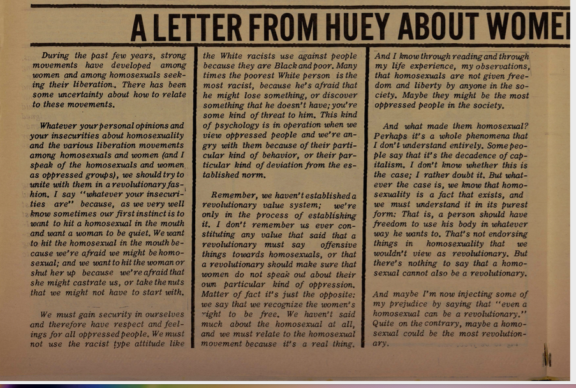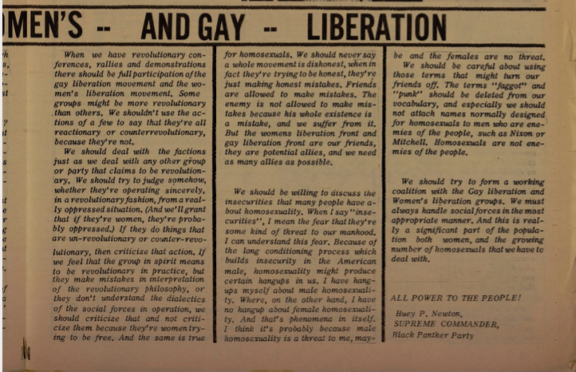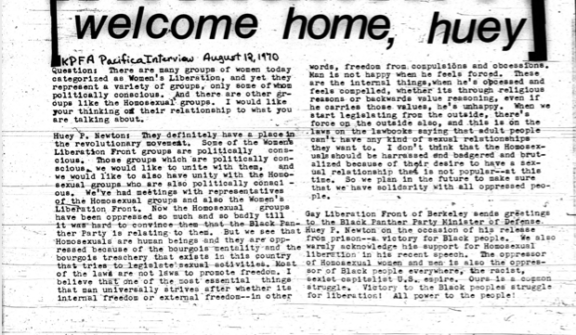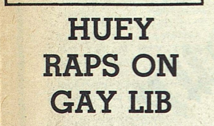In late August, 1970, Huey P. Newton, upon release from prison wrote an open letter in The Black Panther, about an alliance between the Homoseuxal movements, Women’s Liberation, and the Black Panther Party. The letter was republished in the Berkeley Barb, in which Newton speaks honestly about his own awakening to the oppression of gay people and women.

“A Letter from Huey about Women’s — and Gay— Liberation,” Berkeley Barb, August 28-September 2, 1970, 10.

Huey P. Newton, “A Letter from Huey about Women’s — and Gay— Liberation,” Berkeley Barb, August 28-September 2, 1970, 11.
When I say “insecurities”, I mean the fear that they’re some kind of threat to our manhood. I can understand this fear. Because of the long conditioning process which builds insecurity in the American male, homosexuality might produce certain hangups in us. I have hangups myself about male homosexuality. (1)
Huey P. Newton called upon the Black Panther Party to include Women’s and Gay Liberationists in their revolutionary plan, building a coalition that stands united against the racist, patriarchal capitalist state.
Writers at Gay Sunshine responded to Newton’s call to solidarity with their own.

“Welcome Home, Huey.” KPFA Pacifica Interview August 12, 1970, republished in Gay Sunshine, August-September 1970.
Gay Liberation Front of Berkeley sends greetings to the Black Panther Party Minister of Defense. Huey P. Newton on the occasion of his release from prison—a victory for Black people. We also warmly acknowledge his support for Homosexual liberation in his recent speech. The oppressor of Homosexual women and men is also the oppression of Black people everywhere, the racist, sexist, capitalistic U.S. empire. Ours is a common struggle. Victory to the Black peoples struggle for liberation! All power to the people! (2)
